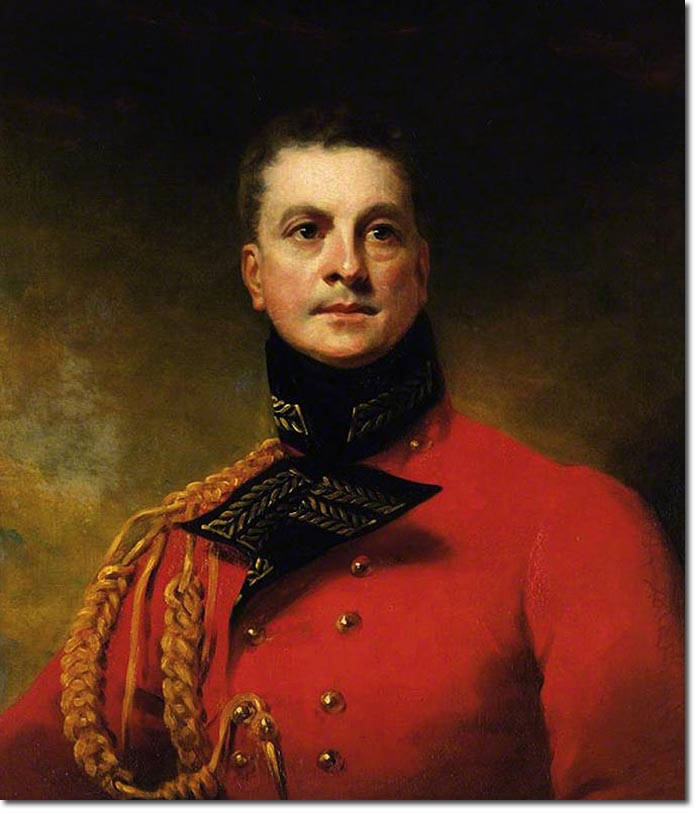|
|


|
|
George Duncan Gordon was born in Edinburgh on 2 February 1770, the eldest son of Alexander Gordon, 4th Duke of Gordon and his wife, the celebrated Jane Gordon, Duchess of Gordon, nee Lady Jane Maxwell. He was styled the Marquess of Huntly until 1827. Educated at Eton, he became a professional soldier and rose to the rank of General. As Marquess of Huntly, he served with the Guards in Flanders from 1793-4. He raised the 92nd Highlanders and commanded the regiment in Spain, Corsica, Ireland and the Netherlands from 1795 to 1799, where he was badly wounded. He commanded a division in the Walcheren Expedition of 1809.
1793 Served in Flanders until 1794 On 11 Dec 1813 he married Elizabeth Brodie, who was twenty-four years his junior. She was the daughter of Alexander Brodie of Arnhall in Kincardineshire. Elizabeth was not clever or good-looking but she came from a rich family and George loved her. She was sensible and had a good head for business. She was close to Queen Adelaide at court and became progressively more religious. George was in the House of Lords staunchly opposing the Great Reform Bill. He was profligate and spent a fortune on clothes. His debts mounted up and he was anxious that Elizabeth could not provide an heir. Nathaniel Parker Willis, the American journalist, has left us with an interesting account of life at Gordon Castle in the twilight years of the 5th Duke's life. He described the "canonically fat porter" at the lodges who admitted him to a "rich private world peopled by ladies cantering side-saddle on palfreys, ladies driving nowhere in particular in phaetons, gentlemen with guns, keepers with hounds and terrier at heel, and everywhere a profusion of fallow deer, hares and pheasants. At the castle a dozen lounging and powdered menials." Willis continued: "I never realised so forcibly the splendid results of wealth and primogeniture." Just before dinner the Duke called at his room, "an affable white-haired gentleman of noble physiognomy, but singularly cordial address, wearing a broad red ribbon across his breast, and led him through files of servants to a dining room ablaze with gold plate." The Duke had three illegitimate children: Charles Gordon, Susan Sordet, and Georgiana McCrae. He died at Belgrave Square on 28 May 1836, aged 66, the last of his illustrious line. The Dukedom of Gordon became extinct, but the Marquessate of Huntly, created in 1599, passed to his distant cousin the Earl of Aboyne. The Gordon estates passed to his nephew, Charles Lennox, 5th Duke of Richmond. The Gordon moveable property was left by the Duchess to the Brodies of Brodie. Elizabeth Brodie, the last Duchess of Gordon, retired to Huntly Castle Lodge, where she became even more fervently religious than she had been previously and conducted the rest of her life with good grace and Christian dignity until her own death on 31 Jan 1864, when the last trace of the original Dukedom of Gordon was also extinguished. |
Armed Forces | Art and Culture | Articles | Biographies | Colonies | Discussion | Glossary | Home | Library | Links | Map Room | Sources and Media | Science and Technology | Search | Student Zone | Timelines | TV & Film | Wargames